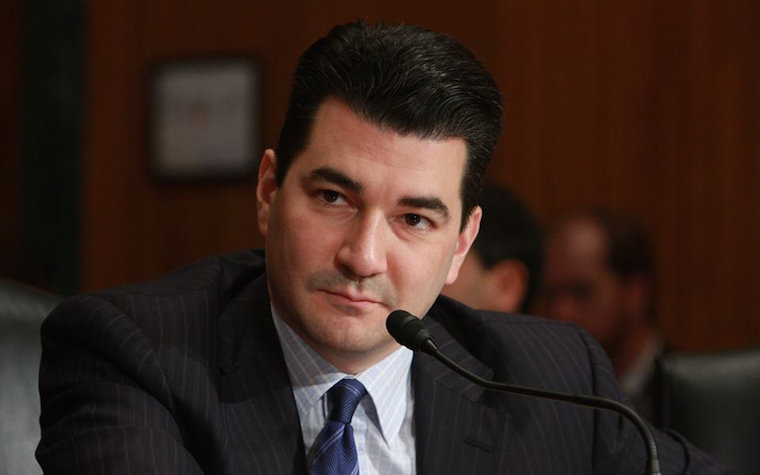
The nominee to lead the Food and Drug Administration faced questions today over his business connections to health care and pharmaceutical companies and promised lawmakers he would be an "impartial and passionate advocate for public health."
Dr. Scott Gottlieb, a physician, a businessman, and former senior adviser to President George W. Bush, said his experiences have shaped his view on the role of the FDA.
"Collectively, they have helped form my values and perspectives, but among other things they have taught me a need for an absolutely objective regulatory watchdog," he said.
Gottlieb is currently a policy analyst with the American Enterprise Institute, a conservative think tank in Washington, D.C. He will resign from that position if confirmed.
In ethics documents filed last week, Gottlieb said he would not involve himself in any decisions involving 20 companies and would resign from positions in a venture capital firm and investment bank that fund health care firms.
"The things I have done, my accomplishments, my failures, and everything in between have shaped what I am today," Gottlieb told the U.S. Senate Committee on Health, Education, Labor and Pensions during today's full committee confirmation hearing. "The FDA's decisions are literally a matter of life and death, and I do not want to do anything in my conduct to reduce people's confidence in the agency's mission."
Questioned by Sen. Bob Casey (D-PA) on whether he would fight hiring freezes or budget restrictions that have been promised by the Trump administration, Gottlieb said he would advocate for proper resources and a strong user fee program.
"I am going to be committed, Senator, to advocating for a strong FDA," he said.
Pharmaceutical companies pay user fees to help fund the FDA review process. Congress is working on a renewal of the program, which expires Sept. 30. In his budget proposal, President Donald Trump said he wanted to increase the fees while freezing the FDA's budget.
Gottlieb has said previously he believes less regulation can lead to lower drug prices. But he was asked whether the agency has a role in policing the industry in a way that might prevent higher prices.
"The FDA is constantly getting drawn into commercial disputes, which puts the agency in a very difficult position because it is a public health agency. It is not the FTC," he said. "And so it's hard for the FDA to simultaneously design policies intended to protect and promote the public health and design policies to try and prevent companies from trying to use the regulatory process for commercial advantage."
The nominee to lead the FDA was also asked about the ongoing opioid addiction epidemic. He said it was one of the biggest issues the FDA will face as it reviews non-addictive alternatives to the painkillers currently on the market.